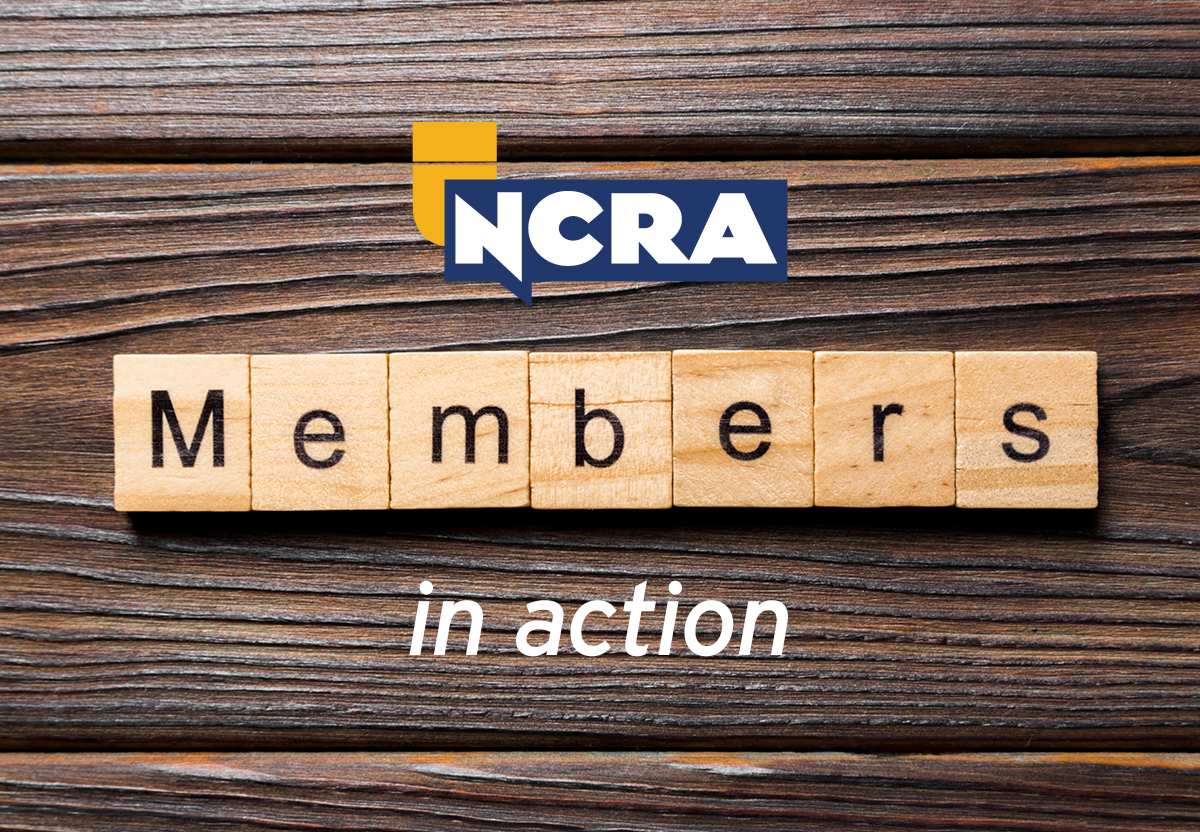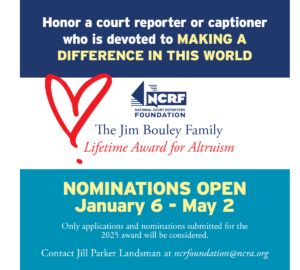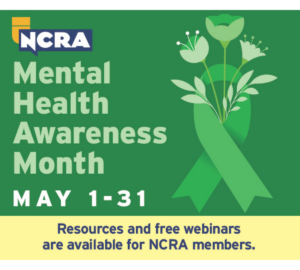A member of the National Court Reporters Association (NCRA) since 1993, Anthony D. Frisolone, RDR, CRR, CRC, CRI, of Staten Island, N.Y., is the Chief Court Reporter at the U.S. District Court, Eastern District of New York. Frisolone, who previously served as Chair of the PR Outreach and Creative Content task forces, granted an interview request with the JCR Weekly to discuss his experience as a court reporter and major proponent of the career field. The veteran court reporter started a new position this year with the U.S. District Court and discusses his role and responsibilities.
JCR | What is the difference between being an official and being a freelancer?
Anthony D. Frisolone, RDR, CRR, CRC, CRI | Official court reporters work for a state court or a federal court. They are considered employees of the court. Official court reporters work either in a pool with other reporters covering courthouse assignments or in a modified pool where you have a weekly/monthly/quarterly assignment and get reassigned where needed. Officials work at the direction of their judge, a court reporter supervisor, or the clerk of court. Official court reporters work a 40-hour schedule or work when their judge works. It depends on the system they work in.
Freelance court reporters work for themselves and can pick and choose assignments and create their own schedules. Freelance court reporters can work for one or multiple freelance court reporting agencies who give them work in the form of depositions, hearings, arbitrations, and as well as covering courts in some states.
JCR | What will your responsibilities look like in your new position?
ADF | I will have a higher level of interaction between myself, the deputy chief and chief clerk of court, as well as our calendar coordinator. I will work with them to make sure that court calendars are covered, the required reports have been submitted by members of the staff, and that hiring of new staff members is done according to protocol. I will hold meetings with the staff to address any issues that may arise, introduce new members to the staff, ensure that onboarding of new staff members is conducted properly and that the new staff members adjust to their new positions.
JCR | Has being a member of NCRA and earning certifications helped you in advancing your career?
ADF | Yes! Passing the RPR two years out of school gave me such a confidence boost! It also allowed me to eventually sit for the RMR and CRR exams. In addition, the RPR allowed me the opportunity to interview for my current position in federal court. Without it, you are not eligible to apply for an official court reporter position. Holding the RMR and CRR enabled me to increase my annual salary as well as to charge counsel for my realtime services. I didn’t have to wait for contract raises; it was a matter of providing my human resources department with a copy of the certifications and within a month of that, my salary increased. What that translates to in dollars is that I earn approximately $125, 000 a year just to walk in the door of the courthouse. Realtime rates for one hookup are $3.05 per page on top of the ordering of a final transcript by counsel. Finally, the journey of practicing for the exams and studying for the written knowledge portions helped me become a better court reporter and increased my knowledge base.
JCR | When were you first introduced to court reporting? What was your initial impression?
ADF | I was interested in becoming a teacher before my uncle, who was a supervising court clerk in Manhattan Criminal Court, invited me to visit the courthouse. Long story short, I met the reporters and that machine spoke to me and I felt the connection immediately. It didn’t hurt that I play a musical instrument (drums) and sitting behind the machine and the way the court reporters described it to me sounded more and more like what I was doing studying and playing the drums already. I found a school in lower Manhattan called Stenotype Academy and I start three months after graduating in September 1991.
JCR | Have there been any changes (good or bad) in the field that you feel have helped or hurt the profession?
ADF | I would rather look at the positive developments in the profession than focus on the negative ones. I would say that the move from DOS-based CAT systems to Windows-based ones propelled the profession forward and has allowed us to stay relevant. Windows-based CAT systems have allowed us to keep pace with technology from internet-based realtime and captions to the computers that we utilize every day. I recently bought a computer that’s as big as my cable TV box that sits underneath my TV. That size has allowed me to streamline my desk and look less cluttered. Another advantage to having a minicomputer is it’s easy to disconnect it and throw in my bag so I can take it anywhere I need to. Laptops are lighter and faster for moving from courtroom to courtroom. Browser-based realtime potential can allow my realtime feed to be streamed to any part of the globe to meet the litigation needs of the attorneys who appear before my court. Computer-based testing has allowed for more testing opportunities for reporters looking to attain certification.
JCR | How have you worked to advocate for court reporting?
ADF | I have a long history of volunteering my time to NCRA as well as to my state association. Most recently, in 2021 to 2022 I was chair and co-chair of the Public Relations Outreach Task Force (PROTF) as well as the Creative Content Task Force (CCTF). Working on those task forces alongside dedicated and talented professionals was so rewarding and helped me come up with new ideas and allowed me to be creative when thinking about how to attract people to the profession. The work we did on the PROTF and CCTF was invaluable to me when faced with the need to recruit new court reporters to my court and I used social media as well as I possibly could. Thanks to those efforts we are filling positions and have a surplus of resumes to handle and sudden changes in staffing in my court. The work on those two task forces was not easy, and we faced challenges but my year there was rewarding, it laid the groundwork for exciting things to come.
JCR | When people are often considering either switching careers or looking for one, they cite work-life balance as being a top priority. Would you say court reporting offers a healthy work-life balance?
ADF | The issue of work-life balance has been broached with me recently when talking to potential candidates for employment. You have to know yourself and know when things are going out of balance. Court reporting can be a busy and demanding profession, so you have to know what your limits are before you find yourself burnt out. The short answer is, yes, you can have that work-life balance but also realize that the legal profession is a demanding and rewarding one and it’s up to you to create that balance for yourself.
JCR | Court reporting is part of the American justice system. How crucial is it to have a certified professional present at all of those proceedings?
ADF | Having a certified professional behind the machine is of paramount importance to the sanctity of a highly accurate verbatim record and ensures litigants that their right to appeal to a higher court is guaranteed. Those letters behind our names signal to a client or a litigant that we have been tested using nationally recognized standards and that we adhere to a Code of Professional Ethics. It also ensures that the record that was created was created by a human being who was present in the room with them.
JCR | Do you have any practice methods or tips you’d like to share with your peers?
ADF | Quality of practice over quantity of practice. Don’t be afraid to push yourself to practice at a higher speed because that’s where the growth happens. Stop focusing on brief forms — that’ll come with time, and you’ll hesitate less and your speed will increase. Know your theory like you know your name because there will be less hesitation and thus you can build your speed faster.
JCR | What would you say to someone considering joining the world of court reporting?
ADF | It won’t be easy, but it’ll be rewarding beyond your wildest dreams!










